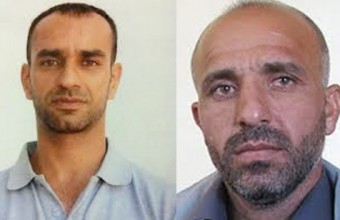Category: In the Media
-
Palestinian Village of Bab Alshams Remains Steadfast
Update: The Israeli occupation forces invaded Bab AlShams village in the middle of the night and arrested all it’s residents and removed them by force injuring six Palestinians. The Residents of Bab ALShams were forced on an ISraeli police bus and driven through Jerusalem/Al Quds, from which as Palestinians they are banned by Israel, and…
-
Palestinians establish a new village, Bab Alshams, in area E1
11 January 2013 | PSCC, Bab Alshams, Occupied Palestine 250 men and women from across Palestine establish this morning a new Palestinian village named “Bab Alshams” (Gate of the Sun). Tents were built in what Israel refers to as area E1 and equipment for long-term living was brought. The group released the following statement:…
-
An appeal to the international community to save the lives of Palestinian administrative detainees on hunger strike, al-Sharawna and al-Eissawi
20 December 2012 | Palestinian Centre for Human Rights The Palestinian Centre for Human Rights (PCHR) expresses extreme concern over the fate of Ayman al-Sharawna and Samer al-Eissawi, who have been on hunger strike in Israeli jails. PCHR holds the Israeli Occupation Forces accountable for these lives, and calls upon the international community to exert…

